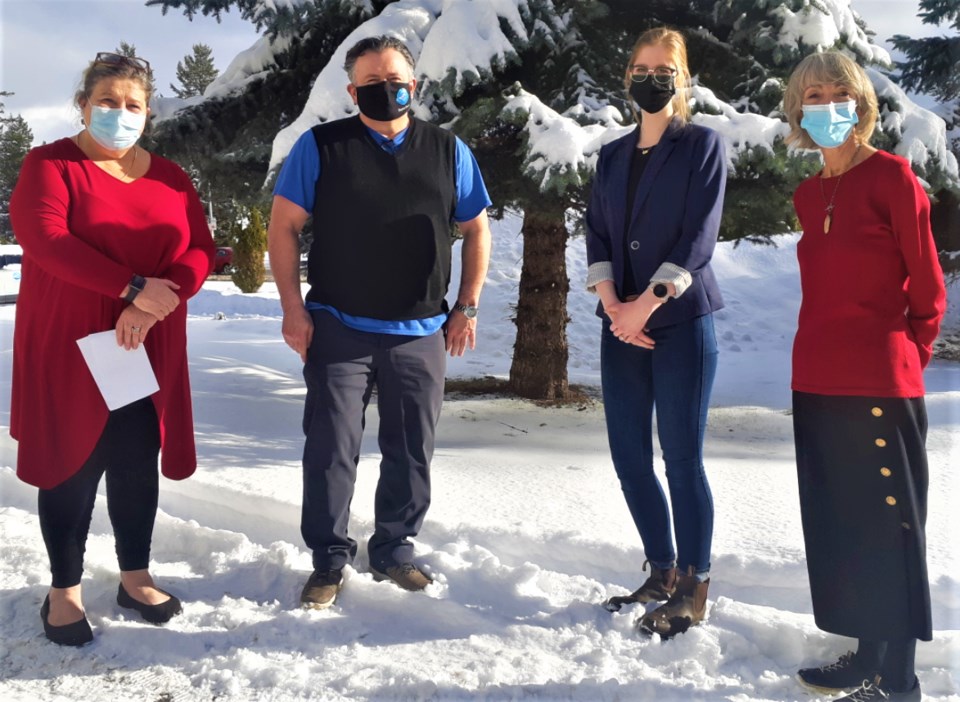COVID is a killer virus that has so far taken the lives of nearly 21,000 Canadians.
For many more of its victims the disease has caused life-altering effects because of the damage it does to lungs, hearts and other vital organs.
For the sickest COVID patients who have needed breathing tubes to stay alive through their darkest hours, fighting for their lives in a hospital intensive care unit, there are psychological hurdles to overcome in their recovery. There are stigmas attached to how they became infected and COVID patients and their families suffer as a result.
In the 11 months of the pandemic, 3,100 people in the Northern Health region have tested positive for COVID-19 and while many have made full recoveries, many remain sick, and the uncertainty of the disease and its unknown long-term effects is causing anxiety for COVID survivors and their families.
The Prince George Hospice Society recognizes the problem as a new health issue and is organizing a COVID support group. It is reaching out to the people touched by the disease to hear their stories and provide comfort care to help them through these troubling times.
The society is asking COVID survivors to contact them to set up virtual support sessions as individuals or in groups to help them through their recoveries. The weekly sessions on Zoom will give people touched by the virus a chance to share their stories with people who have encountered similar situations so they won’t feel so alone as they try to piece their lives back together. For some, unsure whether they will ever fully recover, that won’t be easy.
“People have described it as aging 20 years overnight - it’s drastic and profound - so it’s not even like regular chronic diseases where you gradually grow into your disease and become sicker, this is night and day,” said Donna Flood, executive director the Prince George Hospice Society.
“The other thing that happens to them is they’re in hospitals, in ICU, very sick, without friends or family with that thought they might be dying. How traumatic is that? Some of them feel quite stigmatized as well because people (question), ‘How did you get COVID? Where did you go?’ and there is some of that blaming people for even getting COVID.
“Some people are feeling so isolated, a little bit ashamed and traumatized, so we want them to know this is a very safe place to come and share their stories and hopefully heal a bit from what’s going on.”
Through its comfort care programs, the hospice society has a team of experienced staff and volunteers experienced in reaching out to caregivers of people looking living with longterm illnesses such as cancer or Alzheimer’s disease.
Flood said the society tries to adjust to the needs of community and an example is the support program it has developed the past 18 months to help people who have lost loved ones to the opioid crisis. That help is even more needed now during the pandemic, when caregivers are more likely left on their own because of forced lockdowns and travel restrictions, and that prompted the society’s COVID response.
“We want to hear from the people to see what they need and what they feel would be helpful to them,” said Denise Torgerson, the society’s community program manager. “When people get an opportunity to tell their story, it’s incredibly empowering for them.
“We don’t want this to become a hidden disease. I’m really worried that those people are just going to be numbers and statistics. There’s a really strong human quality to this I don’t want to be lost. We want people to have a platform to come in and tell their story, whether it be to one of us here at hospice or to other people suffering the same illness. We have a gaggle of volunteers who lead with their heart and we’re just looking for information from the community as to how to move forward.”
The Prince George Hospice Society is best known for the palliative care it provides at Prince George Rotary Hospice House for people in the final stages of their lives and grief support it gives to their families. Because of the infectious nature of the virus, the facility is not equipped to receive dying COVID patients. In the past month, surviving family members of three people who have died of COVID have asked the society for help and the hope is that once the program is up and running more will want to participate in the individual or group support sessions.
The society can be reached by phone at 250-563-2551 or through email through the website portal at hospiceprincegeorge.ca..



